Francis Ford Coppola is considered one of the greatest directors of Hollywood. The visionary auteur’s bold subject matters and unique directorial techniques make him one of a kind. He acquainted Hollywood with dark-themed films and brought a level of acceptability to the authentic use of sets. Being one of only eight filmmakers to win two Palme d’Or awards, Coppola is also the winner of five Academy and Golden Globe awards. Even though his movies garnered critical acclaim, most of his films bombed at the BO. In spite of this, his films have often been cited to influence modern-day cinema as we know today. His narratives and use of anti-heroes to establish a confluence of change of perspective and changed the way society discerned taboos and sensitive topics.
Coppola is now retired, with having no considerable success since the late 90s. Even then, he remains a true virtuoso of American films. Here is the list of top Francis Ford Coppola movies selected from his impressive filmography.
10. Rumble Fish (1983)
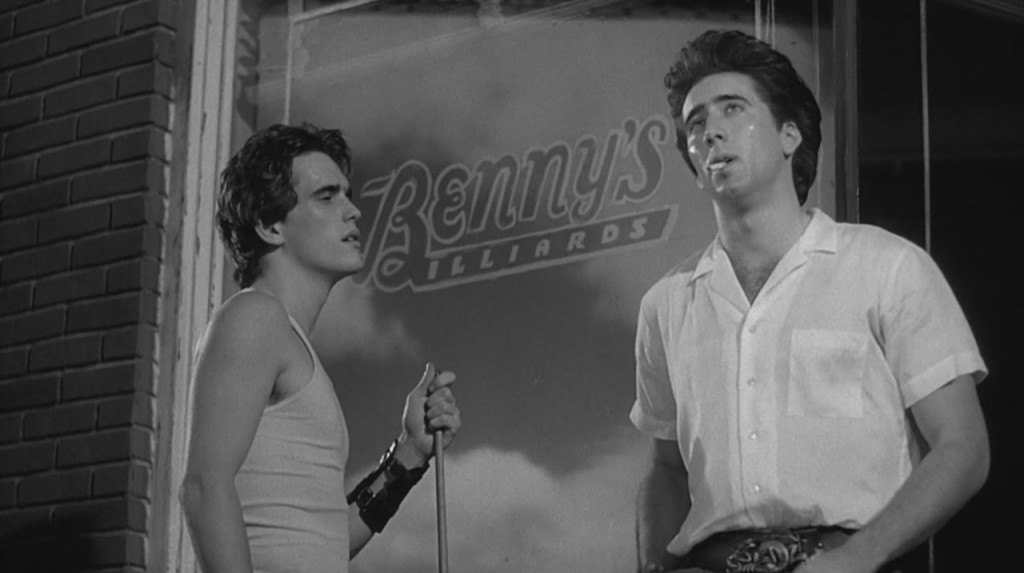
Based on the 1978 novel of the same name by S.E. Hinton, the film centers on the relationship between Motorcycle Boy (Mickey Rourke), a revered former gang leader wishing to live a more peaceful life, and his younger brother, Rusty James (Matt Dillon), a teenaged hoodlum who aspires to become as feared as Motorcycle Boy. Coppola approached a number of new direction techniques, which later attracted a lot of negative attention, with critics blaming him for choosing style over substance. The film bombed at the Box Office, but got some positive attention for introducing avant-garde techniques and camera angles.
9. The Outsiders (1983)
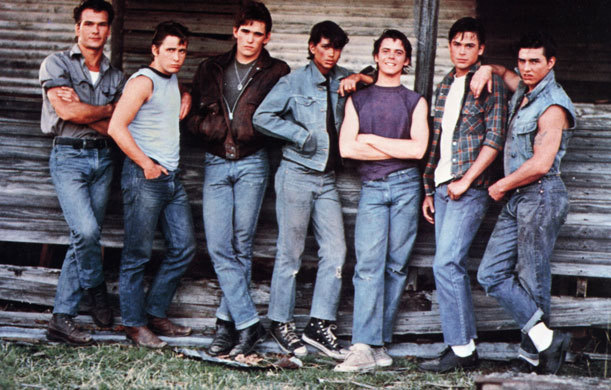
This coming of age drama is also an adaptation of a S.E. Hinton novella of the same name. It is known for its future-stars cast, featuring names like Rob Lowe Tom Cruise Diane Lane and c Thomas Howell. The movie was one of the few Coppola movies to have a net positive total, grossing $33m against a budget of $10m. The film was praised on release, with many applauding the casting and their subsequent performances and the screenplay.
8. Bram Stoker’s Dracula (1992)
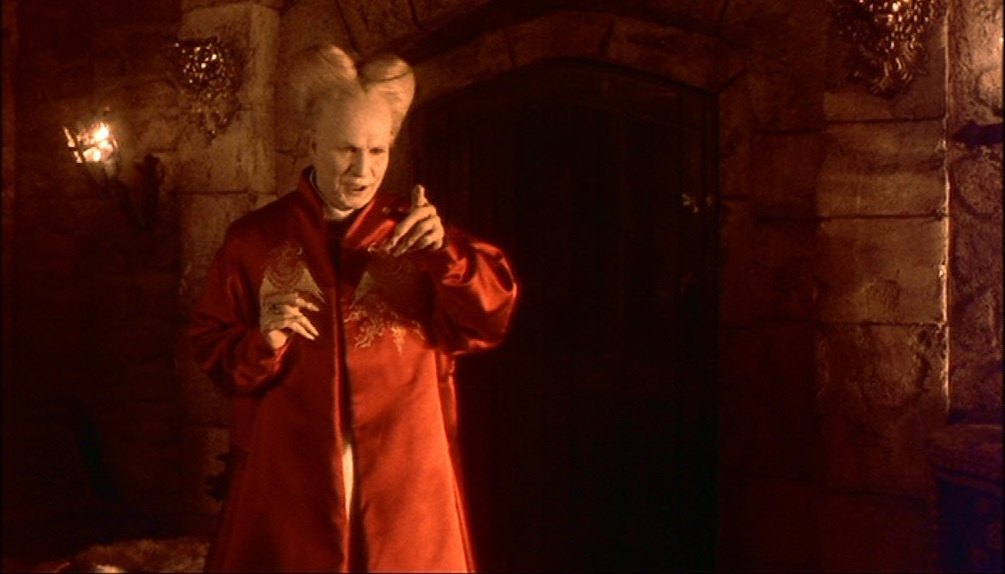
It couldn’t have been made more literal. Yes. The film is inspired by a Bram stoker novel. Guess which one? Yes. Dracula. The film was a huge commercial success, owing to the stellar cast and the popularity of the novel. Please has been directed towards the terrific performances of the cast, but with universal depreciation of Keanu Reeves’ performance and casting. With a juxtaposed plot and gory scenes, Coppola was credited for saving the movie with his vision and understanding of the characters.
7. The Rainmaker (1997)
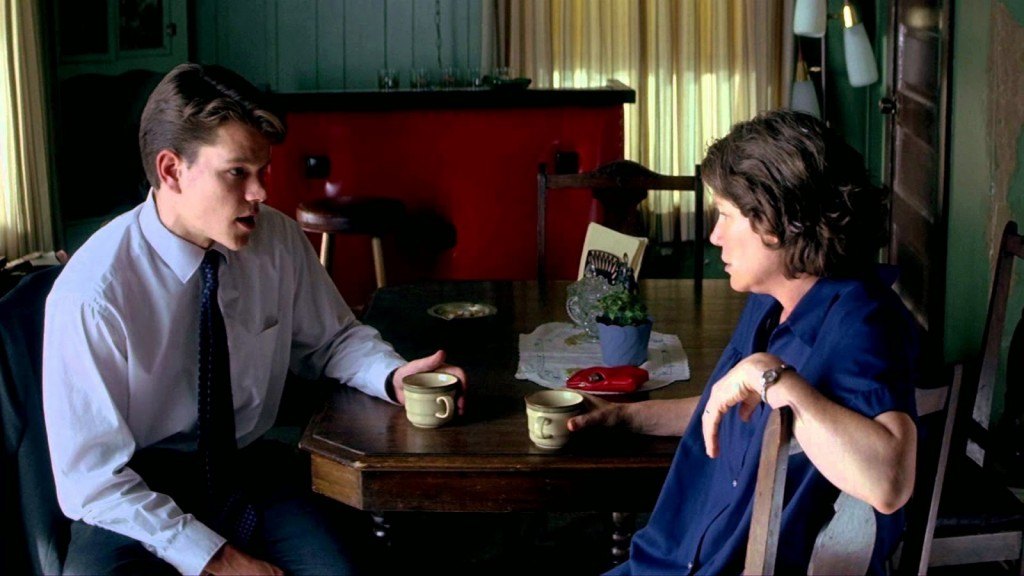
Based on John Grisham’s novel, which was written in 1995, this legal drama is considered to be Grisham’s best adaptation on screen. Invigorated by its talented cast and foundational direction from Coppola, the film was a critical and commercial success. It also brought into the limelight the young Matt Damon, whose performance was subject to universal acclaim. This gripping and moving tale of redemption and salvation won hearts and went on to gross $45 million world-wide. Although criticized for its running time, this was cited as Coppola’s comeback in mainstream cinema and his re-entry in the most coveted directors of all time.
6. Peggy Sue got Married (1986)
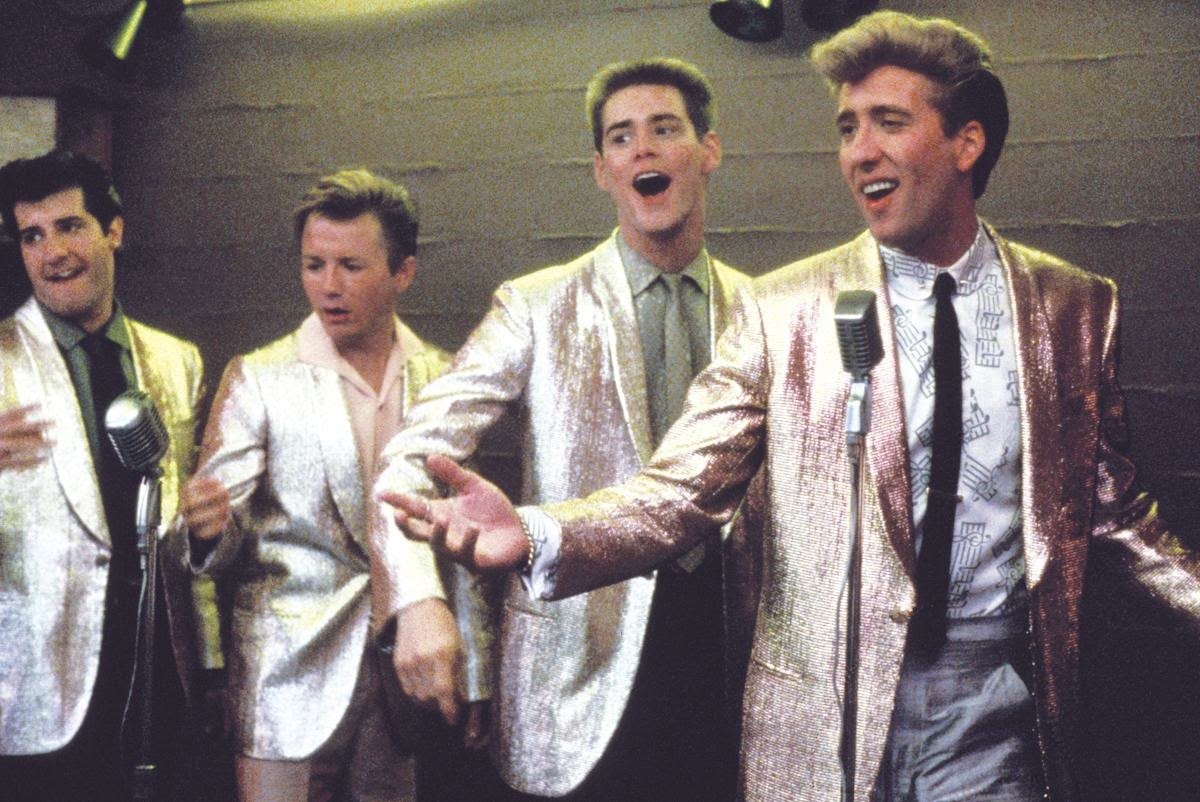
Starring the gorgeous Kathleen Turner (Charles Bing!) and the affable duo of Jim Carrey and Nicolas Cage (yeah, you read that right), this comedy-drama was another one of Coppola’s comebacks. Tracking the transportation of a divorced (almost) mother of one back to her senior high-school year, the film has gotten cult status over the years. With strong critical feedback, and a positive word of mouth, the film managed to gross more than twice its budget, totaling $42 million worldwide. Kathleen Turner got special attention for her performance and was nominated for multiple awards, with the film also managing three Academy Award nominations.
Read More: Best Woody Allen Movies
5. Tucker: The Man and His Dream (1988)
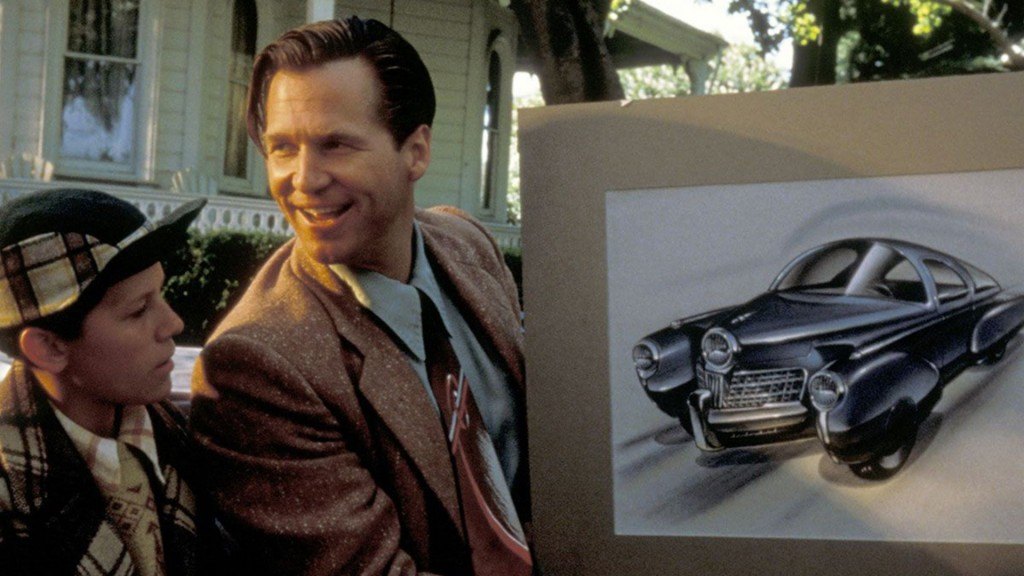
This film is a biographical-comedy drama starring Jeffrey Bridges. The film revisits the life of Preston Tucker and his attempt to produce and market the 1948 Tucker Sedan, which was shrouded amidst the miasma of scandal between the “Big Three automobile manufacturers” and accusations of stock fraud. The film holds a respectable rating of 84% on Rotten Tomatoes, in spite of getting declared a box office bomb, grossing $20m against a budget of $24m. Bridges’ performance was highly praised, seconded only by Martin Landou’s award winning performance.
4. The Conversation (1974)
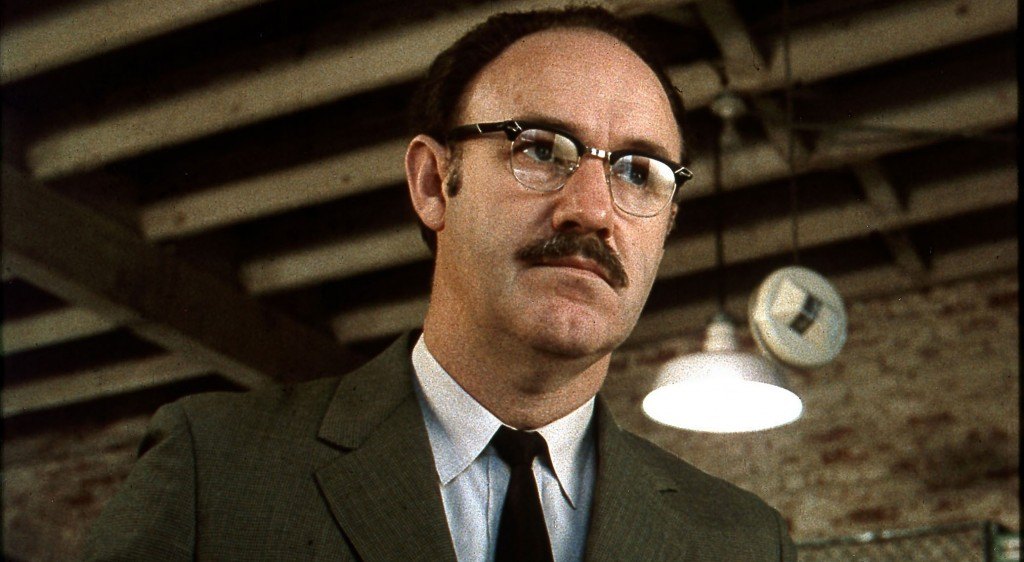
This film changed my life forever, awakening my long-lost dream of becoming a filmmaker, which was composed by parental pressure and societal taboos. The film was released the same year as The Godfather II, and Coppola was successful in overcoming himself (wait, what?). Starring the outstanding Gene Hackman, as the taciturn and surreptitious Harry Caul, with James Cazale, Robert Duvall and Harrison Ford in supporting roles, the film follows the conflicted assignment and the quandary Harry finds himself in, owing to his occupation hazards. It was remarkable how Coppola managed to create a movie based on just one particular dialogue and based the entire film around ten words. The hauntingly poetic ending, which I believe to be the best ending of all time in a movie, is emblematic of Harry’s state of mind and his over-precarious nature about keeping himself obscure from the world. The film is one of my personal favorites and comes highly recommended.
3. The Godfather II (1974)
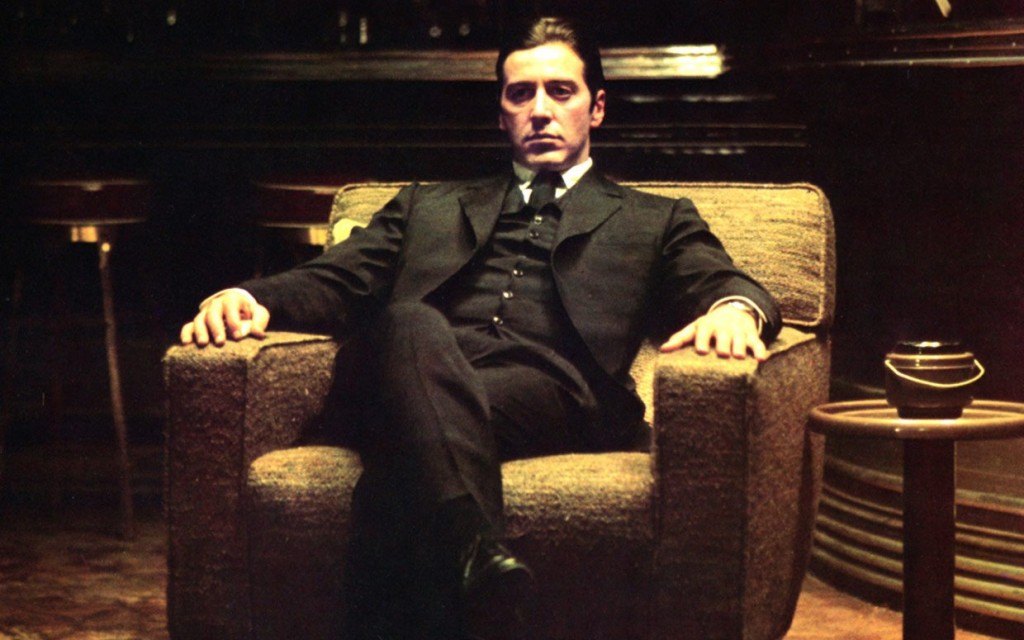
Why number three? Two words: Marlon Brando. Now don’t counter me with those three magical words (Robert De Niro, for the slow ones)! Perhaps the greatest sequel ever made, which many touted as being even better than the original (which was again the greatest film), The Godfather II envisages Michael’s new role as being the newly coroneted Godfather. Taking reins from his doting father, the film is particularly famous for the mass murders of Michale’s competitors in a beautifully shot series of scenes against the pious backdrop of his son’s christening and baptization. The film that won Coppola the triumvirate of the top honors for a director at the Oscars, it also was one of the few films having a positive net gross. Al Pacino gave the performance of a lifetime, as the film triggered events which changed Michael as a person, while personifying his sensitive side for his family. And Robert De Niro. Well, need I say more!
2. Apocalypse Now (1979)
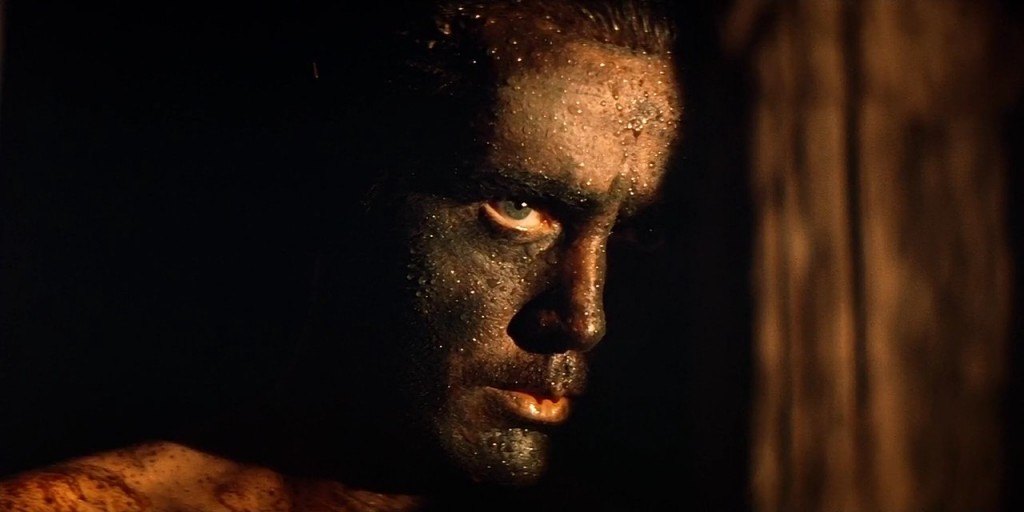
Undoubtedly Coppola’s most commercial film to date, this harrowing documentation of the Vietnam war turned out to be one of the greatest films of all time. It also cemented Coppola’s position amongst the very best of Hollywood. Starring Marlon Brando, Robert Duvall, Martin Sheen and Dennis Hopper among others, the movie is known for several amazing trivia you might not be aware of. Ditching CG and adopting a more realistic approach (literally), the film saw one of the most amazing movie scenes shot of all time. The bombing of the forest by the MiG’s was all real. Yes, real. All of it. The F-36 MiG’s were loaned; the forest area was bought; and the explosives were illegal. The epic-war drama envisaged to give an ingratiating discernment of the Vietnam war, with the soldier’s mental trauma and the tragedy on ground taking front-seat. Another big problem for Coppola was Marlon Brando, who arrived on set grossly overweight and on a tight schedule. The use of minimal light and portrait shots by Coppola were a master-stroke, eventually attracting overwhelmingly critical acclaim for the particular scenes. A true masterpiece!
1. The Godfather (1972)
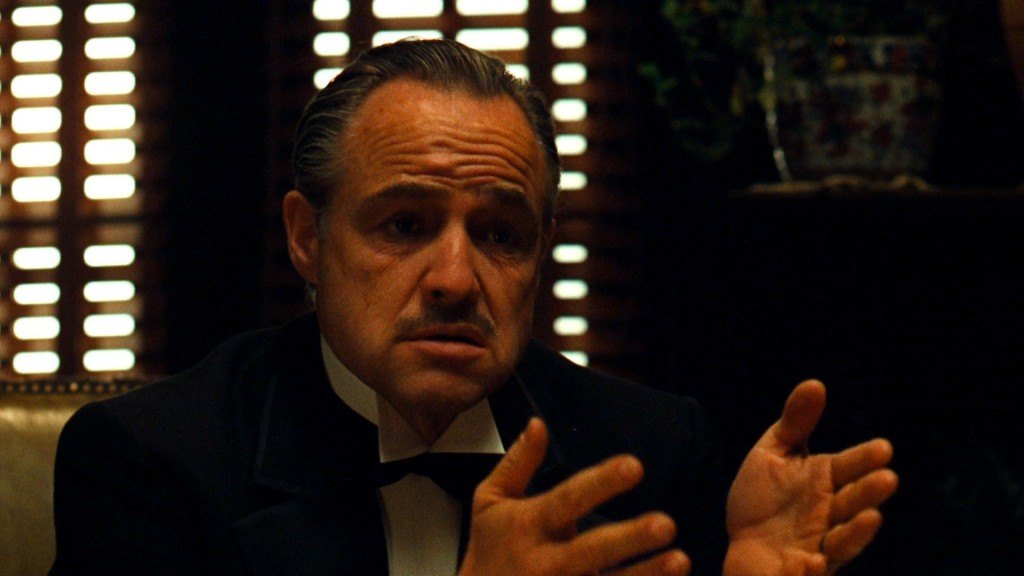
Why number one? Two words: Marlon Brando. A book that caused a sensation and the film, considered today as arguably the greatest film ever made, the Godfather revolutionized the mob-war genre and took the film industry by a storm. Detouring from its quotidian predecessors, the film tried to translate the point of view of the mobster’s conflict and dilemma protecting the ones they love to the audience. They didn’t glorify bad guys, but they glorified what the bad guys would do to protect their families. Innumerable production halts, countless antics of its stars and its dark theme cast an equivocal shadow on its completion. But director Francis Ford Coppola held his own, cast the people who had been etched into his relentless vision (if not for him, Marlon Brando and Al Pacino wouldn’t have been a part of the film). He took the audience into the mobs home, acquainted us with their secret family recipes and made us a part of christening their new-born, we saw something we had never seen before. The essence of the mobster genre changed forever and the legacy of the film lives on today.
Read More: Best Steven Spielberg Movies

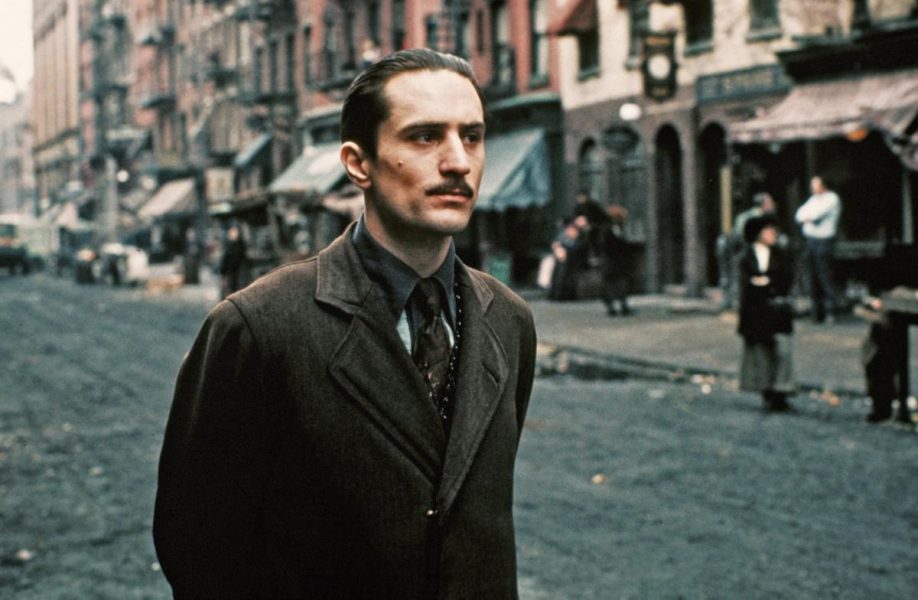
You must be logged in to post a comment.